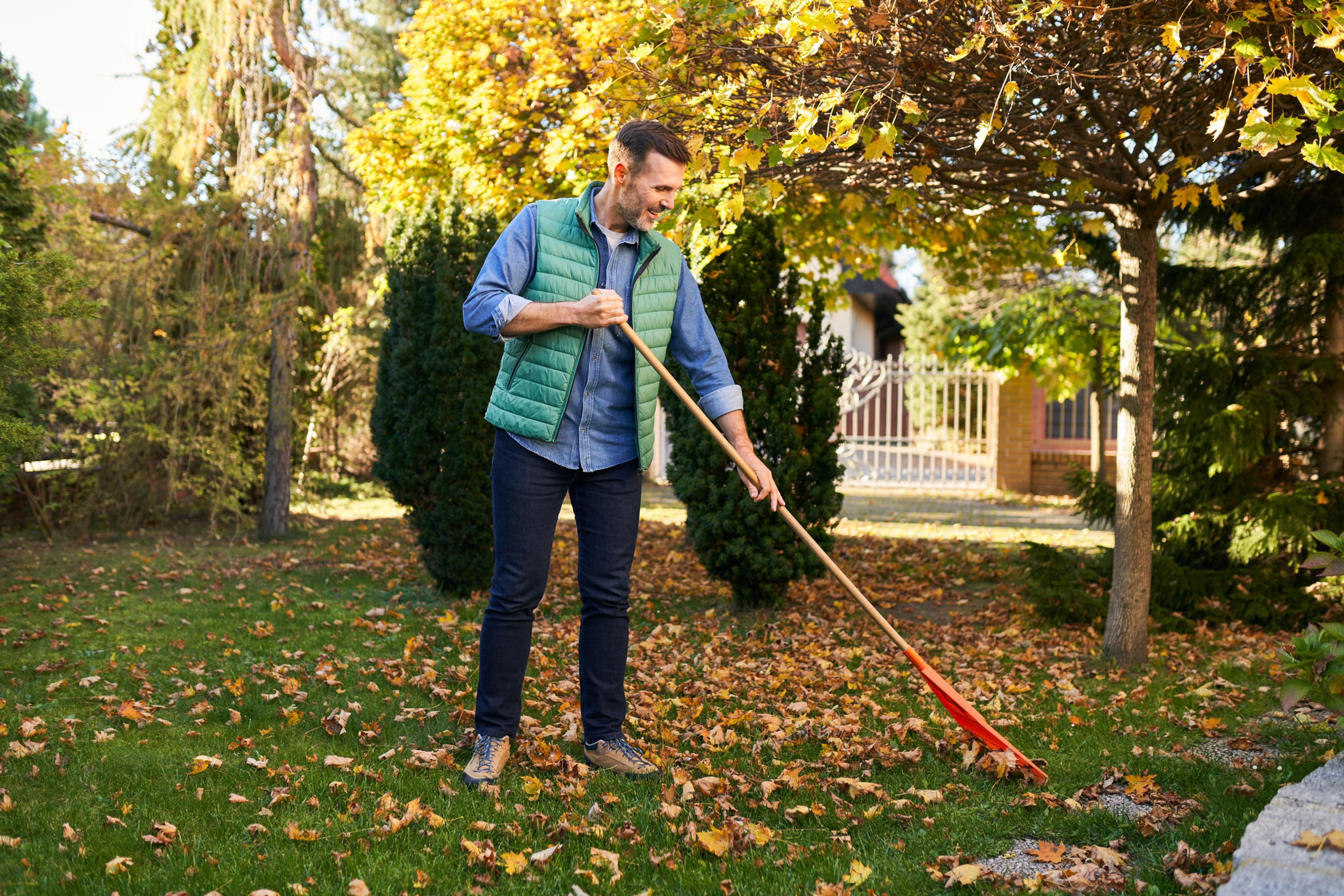What To Know About Heart Health and Yard Work

Lindsay Knake
| 2 min read
Lindsay Knake is a brand journalist for Blue Cross B...

Yard work can be a great exercise, but it can also be a strain on your heart, particularly if you have a history of heart-related health problems.
For healthy people, yard work and gardening are good cardiovascular exercise and associated with better health outcomes. Many different outdoor chores count as moderate-intensity exercise, according to Harvard Health.
But for those who are older, are not physically active or have heart disease, however, strenuous tasks like raking leaves and pulling weeds can be a risk. Raking leaves has the biggest impact on heart health, according to the Cleveland Clinic. The chore can be tedious and involve bending and twisting. Wet leaves in particular are heavy and require more work to take care of.
Other tasks such as cleaning gutters, tree trimming and clearing plants and debris from your lawn are also physical tasks and can stress your heart.
If you set out to take on the leaves and branches in your yard, follow these tips to stay healthy.
1. Stay up to date on annual physicals and discuss heart screenings with your doctor if you have concerns.
2. Avoid working on particularly warm or cold days as extreme temperatures strain the heart, according to research. Cold temperatures are even harder on the heart than hot temperatures because blood vessels to constrict and increase blood pressure.
3. Even on cool days, dress in layers and be prepared to remove outer layers when you get warm and start to sweat.
4. Start slowly as too much exertion too quickly can increase risk of heart attack. Allow your body to warm up with a walk or by starting with easier tasks. Continue your work at a moderate pace and effort.
5. Drink plenty of water and take breaks at least every 20 minutes.
6. As you work, be aware of signs of a heart attack:
- Chest pain, pressure or discomfort during your work.
- Chest pain that persists.
- Pain that goes away when you stop working, then returns when you start again.
- Pain in the arms, neck, back, jaw or stomach.
- Shortness of breath or difficulty breathing.
- Women often feel fatigue or weakness, a cold sweat, lightheadedness or nausea.
If you experience any of these symptoms, stop working and call 911.
Talk to your doctor if you struggle with yard work or have a known heart health risk such as heart disease, a stentor past heart event. You may consider seeking help to manage lawn care and seasonal yard work.
Image: Getty Images
Related:





